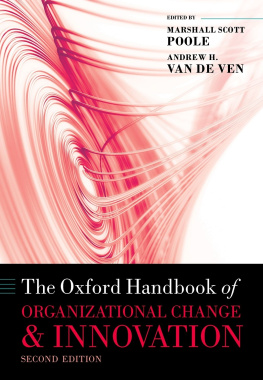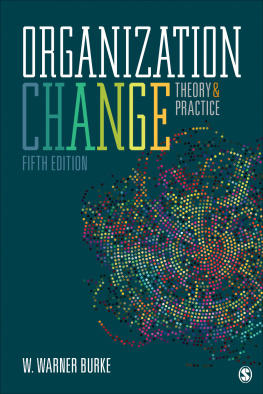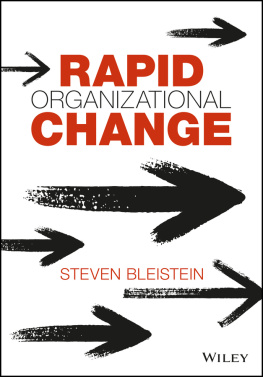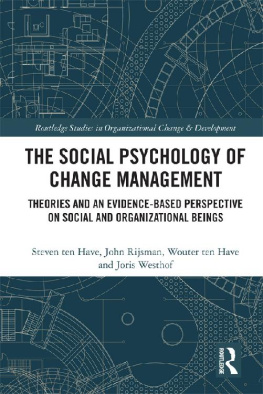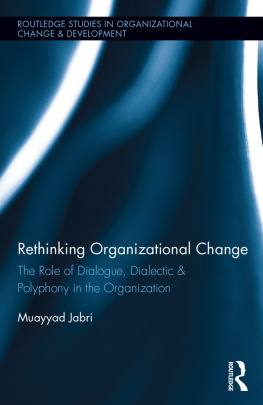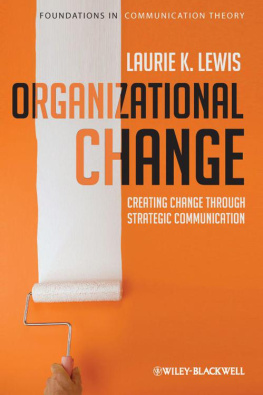Organizational change and innovation are central and enduring issues in management theory and practice. The need to understand processes of organization change and innovation has never been greater in order to response to dramatic changes in population demographics, technology, stakeholders needs (customers, employees, investors, citizens), competitive survival, and social, economic, and environmental, health and sustainability concerns. Witness, for example, the Covid-19 virus pandemic that humanity is experiencing at the time of this writing, and of the necessity for public, private, and non-profit organizations throughout the world to respond to the pandemic. Unfortunately, with failure rates of organization change initiatives estimated at 50% to 70% (Zorn and Scott, ), our track record for managing organization change and innovation has not been good. We critically need new and better ways to understand and manage change initiatives.
This Oxford handbook provides this understanding from a social science perspective by the worlds leading scholars of cutting-edge theories and research on managing organizational change and innovation. It contains thirty-one chapters and five essays by sixty authors and co-authors from forty-seven universities located in twenty different countries. Of the sixty authors, 35% are female and 65% are male. We invited the lead chapter authors because of their distinguished and influential theories and research on organizational change and innovation. These leading scholars, in turn, invited a new generation of highly talented scholars to be their co-authors. Hence, this handbook represents the integrated work of a community of scholars from diverse perspectives, countries, genders, and generations. shows a picture of chapter authors attending a day-long workshop at Boston College in August 2019. The workshop provided a wonderful learning experience for chapter authors to present and get feedback from other chapter authors, and to gain insights on how their chapters contributed to the overall handbook.
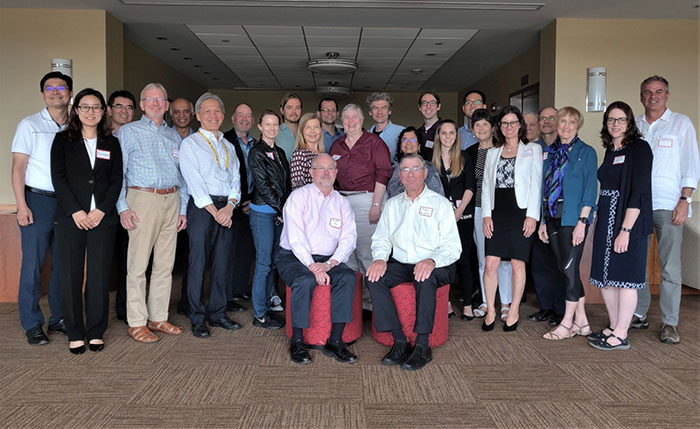
Figure 0.1 Handbook Authors Workshop August 14, 2019
Across the diverse chapters and essays of this handbook three basic questions consistently present themselves:
What is the nature of change and process? New processes of organization change are emerging in many forms, including planned and unplanned, episodic and continuous, incremental and radical, alternative generating mechanisms or motors, and stability in changes.
What are the key concepts in theories of change and innovation? They include human agency, time conceptions, causality and levels of analysis. In addition, we add voices not heard in the first edition about affect and emotion, power and influence, paradox and conflict, critical and political perspectives on organization change, creativity, and innovation.
How should we study change and innovation? Different questions beget different variance and process models and mathematical modeling based on alternative methods for archival, historical, and real-time collection of qualitative and quantitative data.
The handbook is organized into six major classes of models of organizational change and innovation, beginning with Van de Ven and Pooles ().
The first edition of this handbook had its beginnings in the 1980s and 1990s, a time of emerging research on organizational change and innovation. For us, the need for a handbook was triggered by the Minnesota Innovation Research Program (MIRP), which began in 1983 with the objective of developing a process theory of innovation in organizations and society. Fourteen research teams, involving more than thirty faculty and doctoral students at the University of Minnesota, conducted longitudinal studies that tracked a variety of new technologies, products, services, and programs as they developed from concept to implementation in their natural field settings (see Van de Ven, Angle, and Poole, ; 2008).
The MIRP studies highlighted the need for theories of change processes and for methodologies specifically adapted to developing and testing process theories of organizational change and innovation. Workshops to address these needs led to our book (Poole, Van de Ven, Dooley, and Holmes, ) on methods for studying processes of change in terms of the sequence of events that unfold as things emerge, develop, grow, and terminate over time.
When designing the 1st edition in 2000 we found an emerging group of scholars who were breaking the mold of traditional stage theories, and introducing new theories of change and development that were based on processes of evolution, dialectics, social movements, structuration theory, and complexity theory, among others. Since the first edition in 2004, we have been struck by the growth and variety of theories and research on organizational change and innovation. The literature is vast and spread across a number of disciplines. A number of useful and powerful theories have evolved, but they often developed in relative isolation.
Fortunately, we found leading scholars who have been advancing this cutting-edge research. We asked them to develop broad, theoretically driven reviews that encompass the best of previous research and break new ground on their subject. Each chapter reviews, assesses, and advances the state of knowledge in its area. The chapters advance our thinking by developing integrative theories, by establishing connections among theories from different fields and research traditions, and by introducing new lines of inquiry. In our work with these authors we have been constantly impressed by their ability to combine careful scholarship with creativity. We thank them for undertaking the difficult task of bringing order to the extensive range of theory and research they synthesized.

